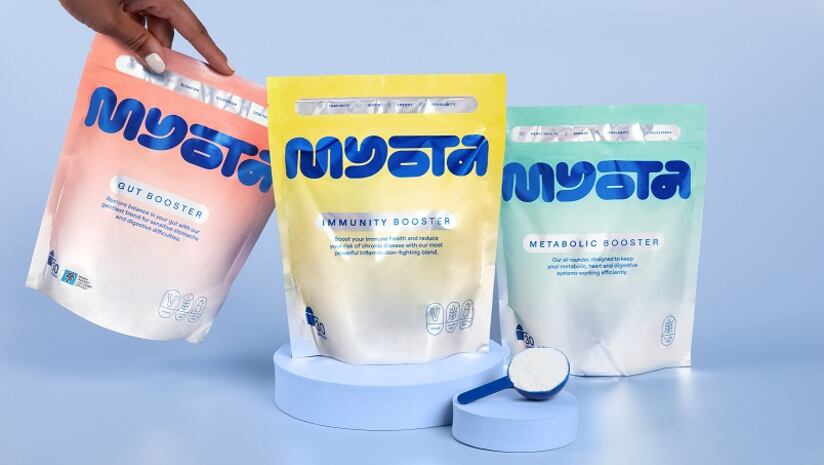One referred to Myota’s powdered drink formulation as an “anti-snack drink” that can “support metabolism”, “reduce blood sugar spikes” and “curb cravings”, while the other contained an image of a bag of Myota powder and text that stated “like GLP-1 drugs just natural”, “improve digestion” and ”boosts GLP-1-production."
The advertising watchdog said the ads implied that Myota’s Metabolic Booster had the same weight-loss effects as GLP-1 drugs. This suggests that the food supplement had medicinal properties, breaching the CAP Code.
Kat Stennett, co-founder and CCO at Myota, said that the company respects ASA’s decision and has since taken down the advertisements.
“We fully respect the ASA’s decision and take their feedback seriously,” she told NutraIngredients. “The advert in question was taken down as soon as concerns were raised, and since then we’ve carefully reviewed and updated all of our marketing materials to ensure full alignment with CAP Code guidance.”
“As a company founded by scientists, we’re deeply committed to research integrity and responsible communication,” she added. “We’ve taken clear steps, including working with regulatory specialists, to ensure our messaging remains accurate, evidence-based and compliant across all platforms.”
Scientific research cannot be used as a basis for health claims
Based in the UK, Myota’s product portfolio includes two fiber bars and three prebiotic fiber blends, with one marketed as Metabolic Booster, one as Gut Booster and the other as Immunity Booster.
Since the company’s founding in 2019, it has invested more than £1 million in clinical trials, with research showing that its prebiotic blends can improve metabolic and inflammatory biomarkers, modulate gut microbiome composition and reduce sub-clinical levels of stress, anxiety and depression.
In the UK, however, health claims are only permitted in marketing communications for food or food supplements if they are authorized on the GB Register. Medical claims— which imply a food can prevent, treat or cure human disease—are never permitted on food supplements.
“The ASA ruled that claims like stimulating GLP‑1 and affecting blood sugar or cravings were deemed medicinal claims, implying effects comparable to prescription-only medicines, which is prohibited for food supplements,” Kristy Coleman, legal director at UK-based law firm Ashfords, told NI.
“Other statements about metabolism support, appetite control, digestion improvement and glucose reduction were classified as specific health claims that were not authorized on the GB Nutrition and Health Claims Register and therefore not allowed to be used, regardless of any science to back it up,” she added.
Stennett said Myota was attempting to convey the findings from the company’s research showing that its prebiotic fiber can increase the production of short-chain fatty acids (SCFAs), which can in-turn increase GLP-1 secretion.
“We understand the sensitivity around references to GLP-1 medications and have removed any language that could be interpreted in that way,” she said.
“To clarify: short-chain fatty acids, which are produced when prebiotic fiber is fermented in the gut, are well established in the scientific literature to naturally stimulate GLP-1 secretion—a biological effect that supports satiety and metabolic regulation. This is fundamentally different from claiming any equivalence with prescription GLP-1 agonists.”
Key learnings for supplement brands
Myota emphasized that the ASA ruling does not question the safety, quality of efficacy of its product offering but instead relates to how certain health claims were “framed.”
“This is something we take seriously and are continually refining,” Stennett said. “We remain fully committed to educating people about the role of fiber in metabolic health, in a way that’s both clear and responsible.”
Coleman said the ruling should serve as a reminder to brands that health and medical claims are closely scrutinized by the ASA, and every claim, whether it is on a product label or a social media advert, should be approved for use.
“The takeaway for brands: scrutinize every claim and make sure you can legally make it!” she said.


